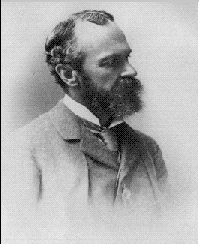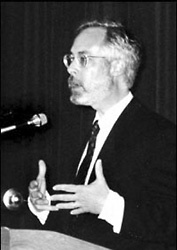Serendip is an independent site partnering with faculty at multiple colleges and universities around the world. Happy exploring!
Notes Towards Day 24: "Beliefs are just bets on the future"

 |
 |
I. coursekeeping
kkazan's notes
Papers due Friday: go 'round and describe your project
Monday: come ready to announce your performance group
read also (as inspiration) 4 BMC speeches
("summative performances"): one each
by Henry "The Question of Our Speech" (1905)
and William "The Gospel of Relaxation" (1907)
--as well (for comparative purposes) two
20th century commencement addresses, by
by Ursula LeGuin and Drew Faust
one key note of this class has been the Jameses' connection
to Bryn Mawr (William's daughter Peggy also came here...)
another has been reader response theory
II. but for today, the much larger intellectual
cultural lens advocated by Paul Jefferson:
The Metaphysical Club, which won a Pulitzer prize in history
and whose author is a cultural historian who continues to
bring James's work to our attention; see
Louis Menand's The Ph.D. Problem
(or “Why Do Professors All Think Alike?”)
his 2001 book a quadruple biography of Oliver Wendell Holmes, William James, Charles Sanders Peirce, and (heir) John Dewey
conceit that holds it together is a several-months-long conversational club, formed in Cambridge, Mass in 1872,
(whose real significance seems rather limited)
intellectual biography of a group of pragmatists, important, Menand says, because "They helped put an end to the idea that the universe is an idea, that beyond the mundane business of making our way as best we can in a world shot through with contingency, there exists some order, invisible to us, whose logic we transgress at our peril."
They rejected absolutes in favor of experiments and experience, insisting "that there is no one way that things must be."
I pulled out for you the passages focusing particularly on William James, but the book is really useful for its larger sweep; it begins tellingly and compellingly w/ the experience of Oliver Wendell Holmes in the Civil War: "The lesson Holmes took from the war can be put in a sentence. It is that certitude leads to violence" (61).
as Monday: find a passage in
The Metaphysical Club to read and gloss--
identify a spot where you had a question
75: fragile/socially insecure/could never make up his mind
certainty was moral death, and he hated to foreclose anything
solution in his own life: cultivate a self-conscious impulsivity
act decisively, then decisively change his mind!
88: pragmatism to subvert block universe:
power of individual agency in the "pluriverse"
reject the authority of prior use
94: uninhibited by received wisdom/
responsible only to himself
358: instrumentality of thoughts
hatred for Hegel???
362: pragmatism's most basic claim:
what people chose to believe is
what they think is good to believe
363: belief=bet in a probabilistic universe;
successful beliefs=winning bets=habits
365: Peirce on the habitual as identity, not plastic
371: single claim of pragmatists:
people are agents of their own destinies
373: fear of violence @ bottom of
whole matter of pragmatism's "fit"
375: where do we get our wants?
439: value @ bottom is tolerance
440: "beliefs are just bets on the future"
Pragmatism was designed to make it harder for people to be driven to violence by their beliefs....they wished to avoid the violence they saw hidden in abstractions. This was one of the lessons the Civil War had taught them.
441: Martin Luther King was not a pragmatist, a relativist, or a pluralist
442: democracy is the value that validates all other values...
the purpose of the experiment is to keep the experiment going.
cf. EvolSys group discussion y'day morning:
"changing the purpose of grocery shopping--
don't ever check out!"
what angle of vision does Louis Menand bring
to his understanding of William James?
(how does it intersect w/--challenge, add to--
other understandings we've explored?)
what specifically has he added to your understanding?
what questions has he added to " " ?


